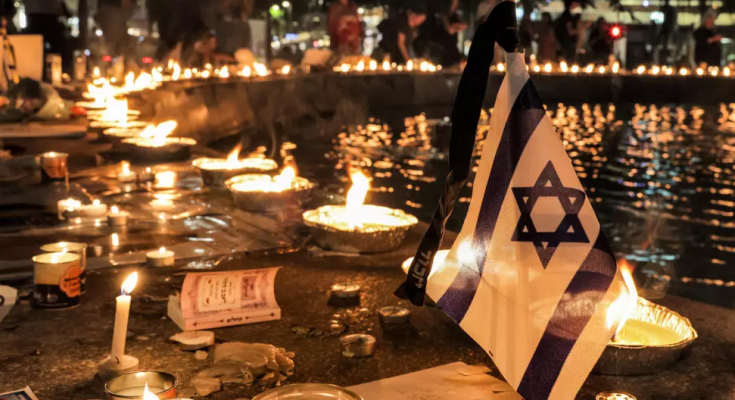Israeli authors tackle trauma of October 7 with words
Jerusalem – Hamas’s October 7 attack has spurred a literary output so extensive that nearly one year later, some Israeli bookstores have entire sections devoted to the country’s deadliest day since independence.

The roughly 50 Hebrew-language titles surveyed by AFP include detailed, unflinching testimonies from survivors.
There are also offerings from other genres from comic strips to a book of poetry written by one of the victims and published posthumously.
Israeli-Belgian cartoonist Michel Kichka told AFP these early publishing efforts are necessary to build “a stone for the building that will recount this day for history”.
Kichka contributed to the French-language comic collection “At the Heart of October 7”, which was published on Wednesday.
It brings together Israeli authors in an effort to, according to its publisher, “collect the words of those who lived through the horror, to leave a trace and to prevent these tragedies from sinking into oblivion”.
The Hamas attack on southern Israel resulted in the deaths of 1,205 people, mostly civilians, according to an AFP tally based on official Israeli figures, which includes hostages killed in captivity.
Militants seized 251 captives during the attack, 97 of whom are still held in the Gaza Strip, including 33 the Israeli military says are dead.
Israel’s retaliatory military offensive has killed at least 41,084 people, according to the Hamas-run Palestinian territory’s health ministry, which does not provide details of civilian and militant deaths.
Solidarity the thread
The United Nations rights office says most of the dead are women and children.
Few of the books about October 7 refer to the ongoing bombardment and destruction in Gaza.
However, photojournalist Ziv Koren does include in his book “The October 7 War” some pictures he took in the territory while he was with Israeli soldiers.
Much of his collection, though, like the other titles, focuses on what happened in Israel.
By recounting heroic acts of civilians responding to the attack, “At the Heart of October 7” seeks to highlight “the solidarity of Israeli civil society”, said Kichka, who also wrote a book on the Holocaust called “Second Generation”.
The concept of solidarity is a common thread among many of the titles, which also emphasise the military’s slow response as Hamas militants attacked kibbutzim and targeted the Nova music festival near the border with Gaza.
Bookseller Shabtai Cordova said that testimonies laying bare what happened on that day tend to sell the best.
“They make readers feel that they are part of this story,” said Cordova, who is also a writer but said he has been unable to bring himself to produce anything about October 7.
French-Israeli sociologist Eva Illouz said the process of writing “allows us to clarify reality and sublimate emotions that are difficult to bear”.
Telling their stories
In “October 8: Intellectual Genealogy of a Righteous Hatred”, due out early next month, she describes her “anger” at the political left abroad, which she said had failed to support Israel.
A former defence ministry spokesman, Alon Penzel, chose the image of a teddy bear covered in blood for the cover of his book “Testimonies Without Boundaries”.
His work features accounts from rescue workers, doctors and other witnesses.
In “The Besieged”, Nitzan Horowitz, a journalist and former leader of the left-wing Meretz party, and French journalist Herve Deguine chronicle the experiences of 27 young people at the Nova festival.
Among them were 16 who were killed and four who were taken into Gaza as hostages, including Hersh Goldberg-Polin, an Israeli-American who Israel says was “executed” by his captors in a Gaza tunnel in late August.
Chaim Perry, who was kidnapped from Nir Oz kibbutz on October 7, had been planning to publish a book of poetry addressed to his granddaughter, for his 80th birthday.
He wrote about taking her to see the moon, and his family was awaiting his safe return so it could be published.
They made it available after the army confirmed in June that Perry had died in captivity.



